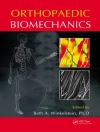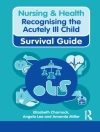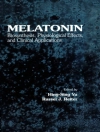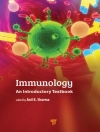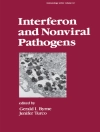‘This book contains a collection of the most recent insights regarding maternal morbidity and mortality and optimization of the care processes during acute critical illness.
The volume represents a practical resource to be used in real-time by medical practitioners faced with a woman who is critically ill during pregnancy and the peripartum period. By providing concise tools for disease identifiers and management flow-charts, the Editors aimed to increase awareness and improve processes of care for this population. Many care paradigms for obstetric patients are currently unstandardized, unfocused and often do not follow a pre-determined path.
Each chapter will provide the practitioner with updated information on how to identify specific critical conditions and how to manage them once they have been identified, to enhance recognition and readiness. This book should be used as a resource to improve the quality of care administered to obstetric patients, to reduce fragmented careprocesses and to improve interdisciplinary co-ordination and communication, with the overall aim of decreasing maternal morbidity and mortality. Therefore, this book represents an invaluable guide to specialists in critical care, anesthesia and obstetrics as well as to intensive care nurses and midwives.’
Tabla de materias
Part I. Epidemiology.- Preventable maternal deaths.- Identifying the critically ill parturient.- Maternal near miss.- Maternal ICU admission.- Part II. The coagulation system.- Physiology of hyper and hypocoagability during pregnancy.- Severe peripartum hemorrhage.- Fluid management.- Management and prevention of thromboticand embolic phenomena during pregnancy- DVT, AFE and PE.- Part III. The cardiovascular system.- Normal changes in cardiovascular physiology during pregnancy.- Exacerbation of pre-existing heart disease (valves, IHD).- Cardiomyopathy of pregnancy.- Pulmonary Hypertension.- POCUS – point of care ultrasound in critical illness.- ECMO.- Part IV. The immune system.- Physiological changes of the immune system during pregnancy.- Hypertension, eclampsia and pre-eclampsia.- Viral infections during pregnancy – HIV, Zika, H1N1, Dengue (including isolation and ICU management).- Infection during early pregnancy and septic abortions.- Infections in Late Pregnancyand Puerperium.- Part V. The respiratory system.- Physiological changes in the airway and the respiratory system .- Airway management.- Lung ultrasound – advanced.- Management of ventilation.- Part VI. The neuromuscular system.- Physiology and monitoring of the brain during pregnancy.- Management of maternal stroke.- Neurological crises (e.g. status epilepticus).- Part VII. Maternal cardiac arrest.- Maternal Cardiac Arrest.- Post-resuscitaton care and targeted temperature management.- The brain dead mother – ethics and physiology.- Part VIII. The renal system.- Renal physiology during pregnancy.- Kidney failure and RRT.- Part IX. The endocrine and metabolic systems.- Nutrition.- Acute fatty liver of pregnancy, liver failure and transplant.- Part X. Surgical dilemmas in critically ill women.- Trauma during pregnancy.- Intra-abdominal surgery.- Brain surgery.- Maternal critical care during disasters.- Part XI. Medications and complications.- Drugs.- Pain management.- Anaphylaxis.
Sobre el autor
Prof. Sharon Einav was born in Beer- Sheba, Israel. She completed a BSc and MD degree at the Hebrew University faculty of Medicine, a Masters degree in Clinical Epidemiology at the Braun School of Public Health and training in Anesthesiology and Intensive Care at the Hadassah Medical Center in Jerusalem. Prof. Einav has worked in the department of emergency medicine, in critical care ground and air transport and in the operating theatre and is currently the director of surgical intensive care the Shaare Zedek Medical Center. She served as the attending physician on the personal entourages of Pope John Paul II and President Bill Clinton in Israel. Prof. Einav studies critical incidents, cardiopulmonary resuscitation and quality of care. She is an Editor of the journal Intensive Care Medicine and has published several textbook chapters (including on trauma and resuscitation of pregnant women) and more than 200 papers. Prof. Einav has also co-authoredseveral guidelines, including the guidelines for Maternal Resuscitation published by the American Heart Association and those published by the Society of Obstetric Anesthesiology and Perinatology.
Prof. Carolyn Weiniger was born in Hull, United Kingdom, and received her medical degree from the Manchester University. After moving to Israel in 1995, she completed her Anesthesia Residency training at the Hadassah Medical Center. Since 2017, she is the Director of Obstetric Anesthesia in the Division of Anesthesia, Critical Care and Pain at the Tel-Aviv Sourasky Medical Center, Israel. Prof Weiniger is currently an Editor of the International Journal of Obstetric Anesthesia, and serves as the Chair of the Obstetric Anaesthesiology Scientific Subcommittee of the European Society of Anaesthesiology, and Chair of the Israel Society of Obstetric Anesthesia. Prof. Weiniger has authored numerous original research papers, reviews and book chapters in the fields of Obstetric Anesthesia and prolonged local anesthetic agents. Her current research focus is maternal safety for high-risk laboring women.
Prof. Ruth Landau received her medical degree from the University of Geneva and completed her anesthesia training at the University Hospital in Geneva in Switzerland. Following an Obstetric Anesthesia Fellowship at Columbia University in New York, she held joint appointments on the faculty at both the University of Geneva and Columbia University between 2001 and 2007. She is currently the Virginia Apgar Professor in Anesthesiology, Chief of Obstetric Anesthesia and the Director of the Center for Precision Medicine in the Department of Anesthesiology at Columbia University in New York. Prof. Landau serves on the Board of Directors of the Society for Obstetric Anesthesia and Perinatology (SOAP), and her term as President of SOAP started in May 2020.
As an obstetric anesthesiologist, Prof. Landau’s research evolved around threethemes: (1) the influence of genetics on pregnancy-related diseases and childbirth (e.g. preterm labor and delivery, endothelial dysfunction and preeclampsia); (2) identifying predictors of post-operative and postpartum pain and pain modulation; and, (3) precision-based pain management for labor and delivery. Currently, Prof. Landau has expanded her research to patients ranging in age from the newborn to the elderly, using genomics and epigenetics in an attempt to better define important clinical phenotypes in the perioperative period.







